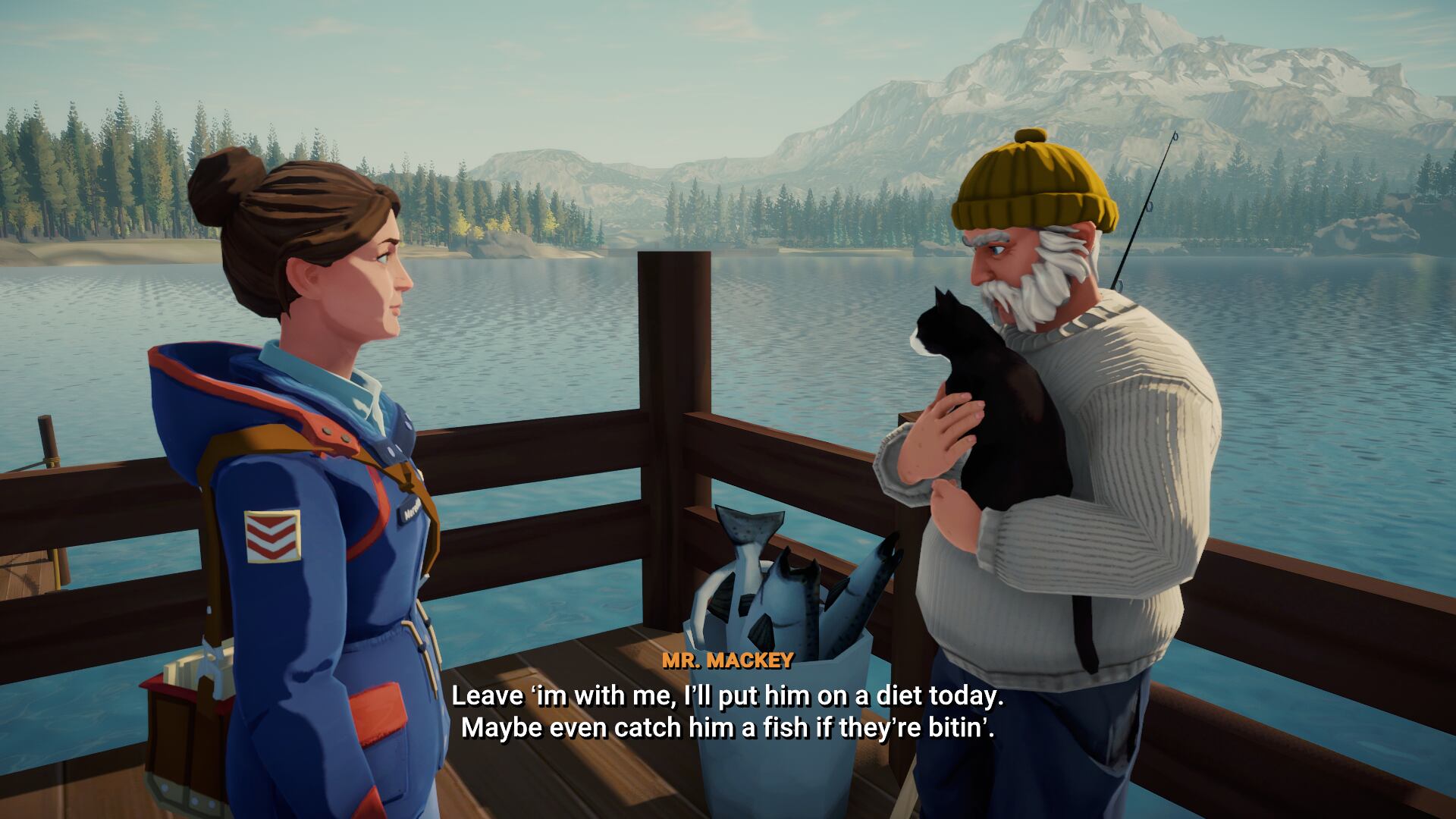In the rural, pristine town of Providence Oaks, Ore., circa 1986, a woman delivers mail.
The premise of Lake isn’t unfamiliar to indie gamers: A software developer trades her career in the big city for an idyllic, small-town life. What’s perhaps interesting to Oregonians, however, is the way that Lake was created by Gamious—a company founded by two brothers from the Netherlands.
In the description of the game on the video game distro site Steam, Lake is billed as an “escape to a beautiful, rustic environment without cellphones and the Internet.” The game’s surrounding marketing reiterates that promise, describing a quiet alternative to the conventionally blaring noise of the video game world.
Providence Oaks is, indeed, rustically beautiful. And it’s a testament to the creators’ love for the region that, despite being a hemisphere away, Gamious created such an immediately recognizable rendition of the Pacific Northwest. Aesthetic touches as small as the contemporaneous Oregon license plates and as obvious as VCR tapes of Jaws and Nightmare on Elm Street reinforce the period piece setting while naturalistic scenery and an ever-present mountain in the distance provide a Pacific Northwest aura.
Unfortunately, it all feels like only a framework. Though the story unfolds over seven hours and 14 in-game days, Lake contains only the lightest sketch of its characters.
The narrative centers on Meredith Weiss, the aforementioned software worker, and her indecision about remaining in her hometown or returning to the computer firm that vies for her time.
In practice, that should mean the story’s separate character interactions would be designed to either show Meredith something her life is missing or close the door for her on Providence Oaks.
However, while the people of Providence Oaks are memorable, they’re only so because they each possess a kind of calling-card quirk. There’s the cynical older woman, the young computer geek, the over-excited artsy childhood friend, et al. None of them have enough screen time or meaningful dialogue to become more than their archetype. Even Meredith is ultimately a character without much of an internal life.
With so many surface level characters, Lake begins to feel eerily disconnected from the real world. The virtual town becomes borderline uncanny.
That said, Lake is full of quiet moments, and it seems like a game designed to shine more in its negative space than its actual content.
While driving around Providence Oaks, listening to the scratchy radio and rolling of the mail truck’s tires, one gets the impression one is supposed to be contemplating. The question is: contemplating what?
Lake tells a story which, ultimately, seems to say that life is unpredictable and we need to roll with the punches in order to find where we truly belong. It’s a noble theme, one that has been the basis for plenty of great literature and storytelling in every medium, but Lake doesn’t seem to know what to do except… bring it up.
Lake is like a beautiful, idyllic postcard. In its every intention and execution, it paints the picture of pastoral Americana and the fulfillment of a quiet life. However, postcards are meant to be as ephemeral as the messages they convey. And very few would choose to consider a postcard for seven hours gameplay.
PLAY: Lake is available on Steam beginning Wednesday, Sept. 1.
